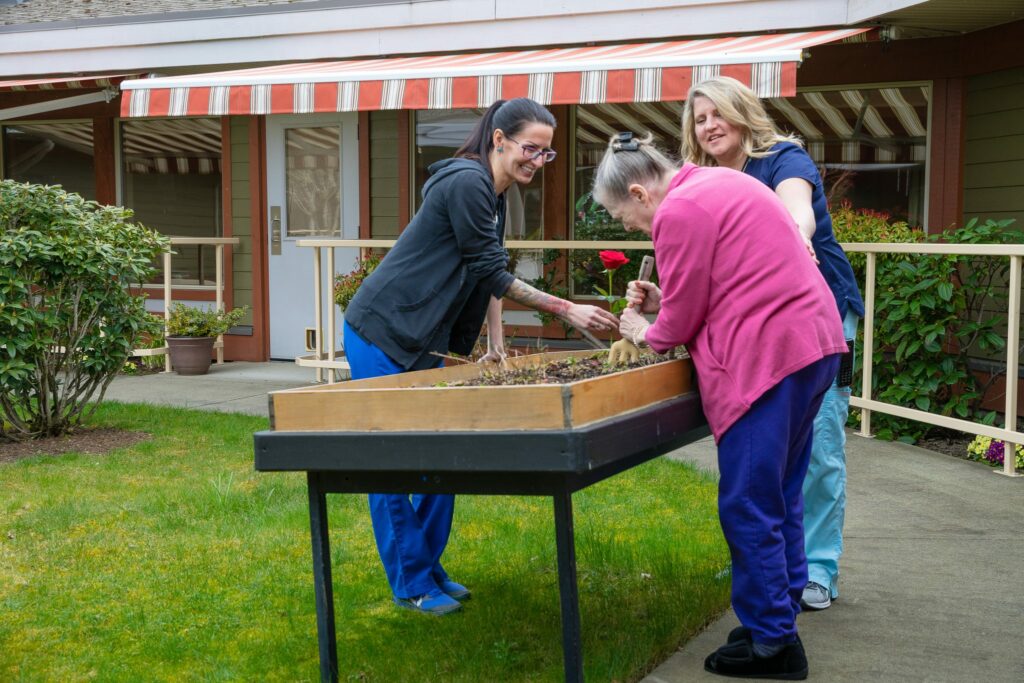What seniors’ living and wellness options are best for people living with dementia?

According to the Public Health Agency of Canada, nine seniors are diagnosed with dementia every hour in Canada. While not all seniors will get dementia, the risk of developing Alzheimer’s disease or another dementia doubles every five years after the age of 65.
The type of support a person who is living with dementia will need changes throughout the progression of the disease. While every person with dementia is different, the information below is intended to help you consider your options and plan for the future.
Early stage dementia
A senior living with early stage dementia is likely to be comfortable and safe living independently, without formal support, for some time. At this stage of the disease help from friends and family can often be enough.
Provided that there are no safety concerns, such as wandering, independent living can be a good way to ensure that the person stays as independent as possible, while not needing to worry about home maintenance, housekeeping or cooking.
If you are considering independent living, ask about what will happen when the disease progresses, for example:
- Are other care options available on site?
- Can additional services be arranged?
- What things would mean that a resident can no longer safely stay in independent living?
Moderate dementia
As the disease progresses, home support, assisted living (provided the person can direct their own care and aren’t experiencing symptoms of the disease that might put their safety, or the safety of others at risk) or independent living with added home support services, might all be appropriate options.
If you are considering any of these options, ask if staff have special dementia training, and how long a person with dementia is likely to be able to be supported in that environment.
The availability of a spouse, or another caregiver, and their wellbeing is often something to consider at this stage.
Advanced dementia
As the disease progresses, most seniors living with dementia will eventually require long-term care, which includes the support of 24/7 nursing staff.
Many care homes have specialized areas or units, sometimes referred to as memory care units, that cater to the specific needs of people living with dementia.
If you are considering a care home for a person living with dementia, think about asking the following questions:
- Do your staff receive ongoing education about working with people living with dementia?
- What programming is in place for people living with dementia?
- Is there a secure area or unit to ensure that the person is safe?
Help is available for people living with dementia and the people who support them. Visit our resources page to learn more.
